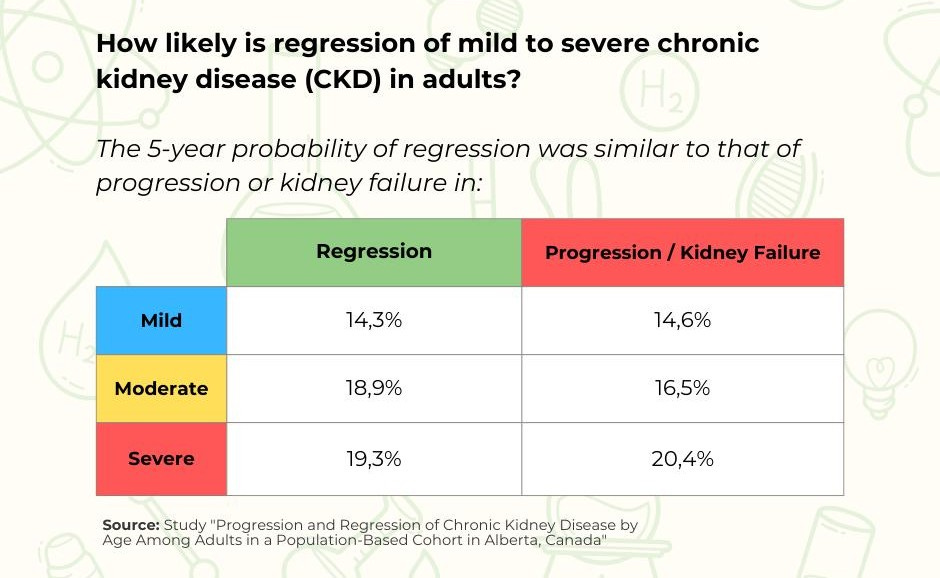Yes, study says CKD CAN REGRESS — Why aren’t we talking about it?
A Groundbreaking Study Suggests CKD Isn’t Always Progressive
Did you know that studies have revealed an intriguing finding? The 5-year probability of regression (yes, improvement!) is comparable to that of progression or kidney failure? It's quite astonishing, isn't it?
For many of us living with stage 3 Chronic Kidney Disease (CKD), we’ve been told a common story: that this is a one-way path. That our kidneys will slowly, inevitably, get worse. That we can only hope to “slow the progression.”
But what if that isn’t the full picture?
A major study published in JAMA Network Open from a team of Canadian researchers analyzed over 129,000 people in Alberta with mild to severe CKD. The results challenge everything we’ve been told.
Their finding? CKD doesn’t always progress. It can also regress.
In fact, over a five-year period, the probability of regression was similar to — or in some cases even higher than — the probability of progression:
For stage 3 CKD (eGFR 30–59), regression happened in about 18–19% of patients.
Even for stage 4 CKD (eGFR 15–29), about 19.3% saw improvement in kidney function.
This was not a small blip or anomaly. The data spanned nearly a decade and included long-term follow-up, using strict definitions for both regression and progression (including a sustained change in eGFR for over 3 months with at least 25% improvement or decline).
The study even noted that with advancing age, CKD regression and death were more likely than CKD progression or kidney failure.
So Why Haven’t We Heard About This Before?
Because for decades, most physicians — and the medical community at large — assumed CKD was a one-way disease. Guidelines and referral systems were built on the idea that CKD only gets worse. And to be fair, for many patients, especially those with uncontrolled diabetes or hypertension, that has been true.
But this study adds to a growing body of evidence suggesting that for some, especially those who manage risk factors well, CKD can improve. That doesn’t mean cure — but it does mean hope.
Still, more research is needed. We don’t yet fully understand who regresses and why. There’s little guidance for clinicians on how to support or encourage regression. But this study is a wake-up call: we need to stop assuming CKD is a one-way street.
A New Tool for CKD: MetaSano
This post is sponsored by MetaSano, a mobile app created specifically for people with Chronic Kidney Disease — especially those of us in stage 3.
MetaSano helps you:
Receive ingredient-level prescriptions based on your lab values
Log your meals and see how close you’re eating to your personalized kidney-friendly diet
Track your water intake
Check if an ingredient is good for your kidneys based on your personal labs
And much more
MetaSano has been built by working hand-in-hand with scientists, universities, and with support from government programs in Canada. Our mission is to empower you with better tools, better knowledge, and better chances — because we believe that food is medicine, and that kidney health isn’t just about slowing down, but also about moving forward.
Start your journey with MetaSano at www.metasano.com — enjoy 7 days free to explore the app and see what’s possible.


Thanks for the good news!